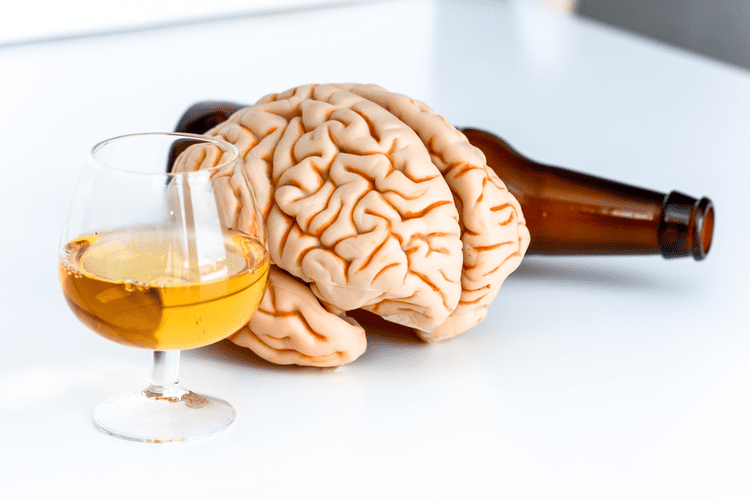If your previous social life revolved around drugs, you may need to make some new connections. It’s important to have sober friends who will support your recovery. Try taking a class, joining a church or a civic group, volunteering, or attending events in your community. Having the support of friends and family members is an invaluable asset in recovery. If you’re reluctant to turn to your loved ones because you’ve let them down before, consider going to overcoming alcoholism relationship counseling or family therapy.
Alcohol Abuse
These programs offer a systematic environment that promotes routine and accountability for sustaining sobriety. Participants share their experiences and emotions in a supportive, confidential setting, encouraging open communication and mutual understanding. The “Service to Others in Sobriety” (SOS) tool, developed to evaluate Alcoholics Anonymous-related helping (AAH), was validated with 301 treatment-seeking individuals. It revealed limited engagement in sponsor-related activities (66%) and 12-step guidance (59%) but high participation in actions like organizing chairs (75%) and promoting meeting attendance (72%). SOS demonstrated strong psychometric reliability, with 92% internal consistency and 94% test-retest accuracy, as documented by Pagano et al. 2010. Finding a strong reason to quit alcohol serves as a cornerstone for successful recovery, offering motivation and focus throughout the process.
Alcohol Addiction Treatment: The Path to Transformation
As these small goals are achieved, they provide a sense Substance abuse of accomplishment that reinforces the determination to continue the recovery process. Outside of organized groups and personal connections, some may also benefit from professional relationships built with therapists, counselors, or recovery coaches. Engaging with professionals ensures a balanced support system to address both emotional and clinical needs. A strong, multifaceted support network is an invaluable asset for navigating the complexities of recovery and rebuilding a fulfilling, alcohol-free life. Support groups such as Alcoholics Anonymous (AA) or other 12-step programs can also serve as a vital component of a recovery support system.
Ready to make a change?
While the recovery period may be challenging, it’s also filled with milestones that can transform your life into one that’s better than you could have previously imagined. Make it clear that drinking will not be allowed in your home and that you may not be able to attend events where alcohol is being served. BetterHelp is an online therapy service that matches you to licensed, accredited therapists who can help with depression, anxiety, relationships, and more.

Rewriting The Story of Addiction – Jo Harvey Weatherford
If you have a loved one struggling with alcoholism, your role as a source of encouragement and assistance can be crucial in their recovery journey. However, it is important to approach this situation with empathy, understanding, and a willingness to set healthy boundaries. Maintaining sobriety and preventing relapse is https://ecosoberhouse.com/ an ongoing journey that requires a multifaceted approach. After the initial stages of recovery, it is crucial to develop a robust support system and cultivate effective coping mechanisms to navigate the ups and downs of the recovery process.

- Also known as “alcohol counseling,” behavioral treatments involve working with a health care provider to identify and help change the behaviors that lead to alcohol problems.
- It’s also normal to feel conflicted about giving up your drug of choice, even when you know it’s causing problems in your life.
- Building a support network of family, friends, and peers who understand and encourage your recovery efforts can be invaluable.
- Peoplewith minor alcohol problems or people who have already received treatment for moderate or severe alcohol problems usuallybenefit from AA.
- “The Vitamin Cure for Alcoholism” by Abram Hoffer and Andrew W. Saul is a groundbreaking book exploring the role of nutrition and vitamin therapy in treating alcoholism.
Consider staging a family meeting or an intervention, but don’t put yourself in a dangerous situation. Distance yourself from people who don’t support your efforts to stop drinking or respect the limits you’ve set. Let friends, family members, and co-workers know that you’re trying to stop or cut back on drinking.
If you’re reading this page, you probably aren’t oneof those people. Stopping alcohol use abruptly is the riskiest way to quit drinking. If you feel physical cravings or withdrawal symptomswhen you quit drinking, you shouldn’t try to stop cold turkey.
In general, the longer and more intense the drug use, the longer and more intense the treatment you’ll need. And in all cases, long-term follow-up care is crucial to recovery. This step-by-step guide can help you cope with cravings, deal with relapse, and overcome your substance use disorder. Embracing a new, meaningful life without alcohol opens up opportunities for personal growth, fulfillment, and authentic connections.

People everywhere can and want to help; you just have to know where to look. Established author, podcast host, and sober midlife coach Kate Baily details her journey to sobriety and the lessons she learned. Rachel Hechtman, recovery advocate and sober life coach, celebrates 34 months of sobriety and shares her incredible recovery story.
When Is It Time for Treatment?
Even a small bit of progress, such as the moment you first acknowledged your addiction problem, can fuel your recovery. If a negative thought is coupled with an urge to drink, a positive thought can replace it. It is important to find outlets other than drinking to deal with negative thoughts.
